|
2/1/2018 0 Comments Meet Sheila Olan-MacLean, CEO of Compass Early Learning and Care (CompassELC) on a Teal Journey Post # 5We met Sheila Olan-MacLean in 2016 when she came to our presentation on collective leadership at the Leadership Connections conference. We asked if anyone in the room had read the book by Frederic Laloux called Reinventing Organizations: A Guide to Creating Organizations Inspired by the Next Stage of Human Consciousnes. Not only had Sheila read it, her team had been doing a book study and been adopting practices described in the book as Teal (yes the color.) Teal organizations are adopting practices in the areas of wholeness, self-management, and evolutionary purpose. We have talked with Sheila a couple of times since we met, and included a quote from her in our book. Sheila and her team are really walking the walk when it comes to collective leadership.
Compass ELC staff have been experimenting with new practices that would bring more wholeness and democracy to their organization, and the way staff work together to create positive outcomes for children and families. Compass ELC operates 30 child care centers which are dedicated to creating supporting and nurturing environments for children to learn, and they are aligning their “adult practices” to match. We were excited to hear an update on their journey. They are not only experimenting more and more themselves, they are teaching other early childhood educators what they are doing. Compass ELC staff are keeping themselves inspired and excited about their journey by:
Staff are saying “I don’t have to come to work—I get to come to work, and I love my job” A recent collaboration culminated in a blog about cold and flus blues. This was a collaboration between Sheila, educators and staff from one of their programs, a Program Lead and their Social Media team. The result is a story about how a dilemma became a path forward through reflective thinking connected to their values and beliefs. Here is the link or you can find it on their facebook page. http://www.compasselc.com
0 Comments
 We met Ben in 2015 when he came to our session at NAEYC's Professional Development Institute on the topic of collective leadership. He had many examples of how he was using collective leadership, and we reconnected this year. He shared with us how he is using collective leadership in his new role. We were excited to feature his story in our January 10 webinar as an example of the element of evolution/emergence. "When I started my new position as the Infant Toddler Outcome Specialist with Partnerships for Early Learners last year our statewide infant and toddler focused trainings fell into my lap. One area that stood out to me was that Indiana ranks 7thhighest in the nation in infant mortality. The state has been partnering with healthcare providers and non-profit agencies to address the issue but we had not updated our training or outreach to early childhood education providers in a meaningful way since 2006. Indiana is lucky enough to have an amazing team of regional Infant Toddler Specialists and at our first full meeting we came up with some top priorities - #1 was addressing Safe Sleep. I quickly started reaching out to various partners such as the Indiana Office of Early Childhood and Out-of-School Learning (which oversees early childhood providers), the Indiana State Department of Health, and First Candle. The Infant Toddler Specialists and myself worked together to completely restructure our safe sleep trainings for flow, content, feel, and level of engagement. We got feedback from people who had assisted with the creation of the original training. I engaged every partner that we could find and facilitated bringing their collective experiences into a completely new training. Since our training went live I have travelled the state observing the Infant Toddler Specialists give the training (since they participated in every step of the development process they did not have to do a train the trainer which meant a quick and seamless rollout!). The difference in the participants’ level of engagement has been amazing. A great moment for me was when an Infant Toddler Specialist’s supervisor (who didn’t know my role yet) commented after observing the new training that she loved it (and how her trainer did) and that she would never have to see the old version again. I could have approached recreating the training all by myself – in the end it would have ended up being more work for me. Getting the buy-in for the Infant Toddler Specialists upfront and throughout the process made the training much better than it would have been otherwise and made the rollout incredibly smooth."
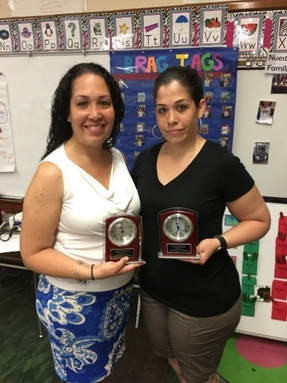 I had the pleasure of meeting Ana Berdecia last fall, and was incredibly impressed by the work of her program in developing collective leadership and cultural proficiency among educators in urban schools. Ana shared with me multiple ways they cultivate collective leadership in their work. One of the most impressive to me, was that they seldom accept individual educators into their program. Instead, they have pairs of educators, who work together daily in the classroom like the team Zenaida Sanchez (2nd grade bilingual teacher) and Norma Villanueva (ESL teacher). These teachers have been successful in supporting student's with a home language of Spanish in their acquisition of English and celebrating the students' cultural identities with culturally responsive curricula. This team got an award from their district: Trenton Public School ESL/Bilingual Program Outstanding Teachers in establishing a Culturally Responsive Classroom. Congrats to Zenaida and Norma. We all know how challenging it is for educators to change their practices, even when they are highly motivated, because of how demanding their daily work is in the classroom. Having a team of educators share the learning and implementation together, makes it much more likely that they will be successful in making and sustaining challenges. This approach also allows teachers to practice co-leadership as well as complimented each other strengths. Another thing she shared with me was how they take suggestions from coaches in the field – in terms of program changes. While this may seem like something obvious and common, it is not. Often the program changes are made by people at the top, who aren’t involved in the day-to- day work of the educators. And often, the input of those working on the front line are a missing element in the conversations and decisions. By including this information and knowledge, they are able to continually improve their program and the results. The third thing she shared with me that really stood out, was how they educators who come to their 3-day culture and language institute follow by nine month of coaching, are able to engage families as “cultural experts” who come into the classroom as guest teachers. This is a win-win, as it increases the engagement of the families and gives everyone the benefit of the rich cultural diversity within the families and communities, these schools serve. This program has resources for anyone interested in boosting their cultural literacy while supporting second language acquisition and the preservation of students’ home languages. Contact information for Ana: Ana I. Berdecia, M.Ed. & Certified Coach| Senior Fellow/Director Center for the Positive Development of Urban Children John S. Watson Institute for Public Policy https://www.tesu.edu/watson/institute/Summer-Institute.cfm 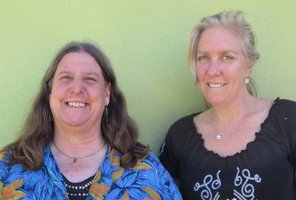 We met Sandy Davie (on the left in the photo) and Nora Caruso (on the right) while writing the book The Five Elements of Collective Leadership. They are Co-Directors of the Santa Cruz Toddler Center in Santa Cruz, California. We were delighted to include some of their story in our book.
They invited me to come visit them during our telephone interview. I was able to visit them in June, when I was in the bay area presenting at the National Association for the Education of the Young Child (NAEYC) Professional Learning Institute. It was such a pleasure to meet them in person and get to see their center. When I was interviewing them on the phone one of the things that struck me was how supported they said they felt. They said it many times. That is a rare thing to hear from anyone in a leadership position in any organization, let alone a child care center. Directors often feel isolated and under-supported as a result of the mismatch between the challenges they face in providing high quality care, the low levels of support, and the historically low salaries of both teaching staff and administrators in early childhood programs. Sandy and Nora believe strongly that the ability of their center to provide consistent high quality care -- is a result of their collective leadership. Benefits of their co-directorship:
Want to learn more about their center? Visit their Website their Facebook Page and Click Here to purchase a copy of their book. |
AuthorChampions of Collective Leadership sharing exciting things happening when people share leadership. Archives
February 2018
Categories |
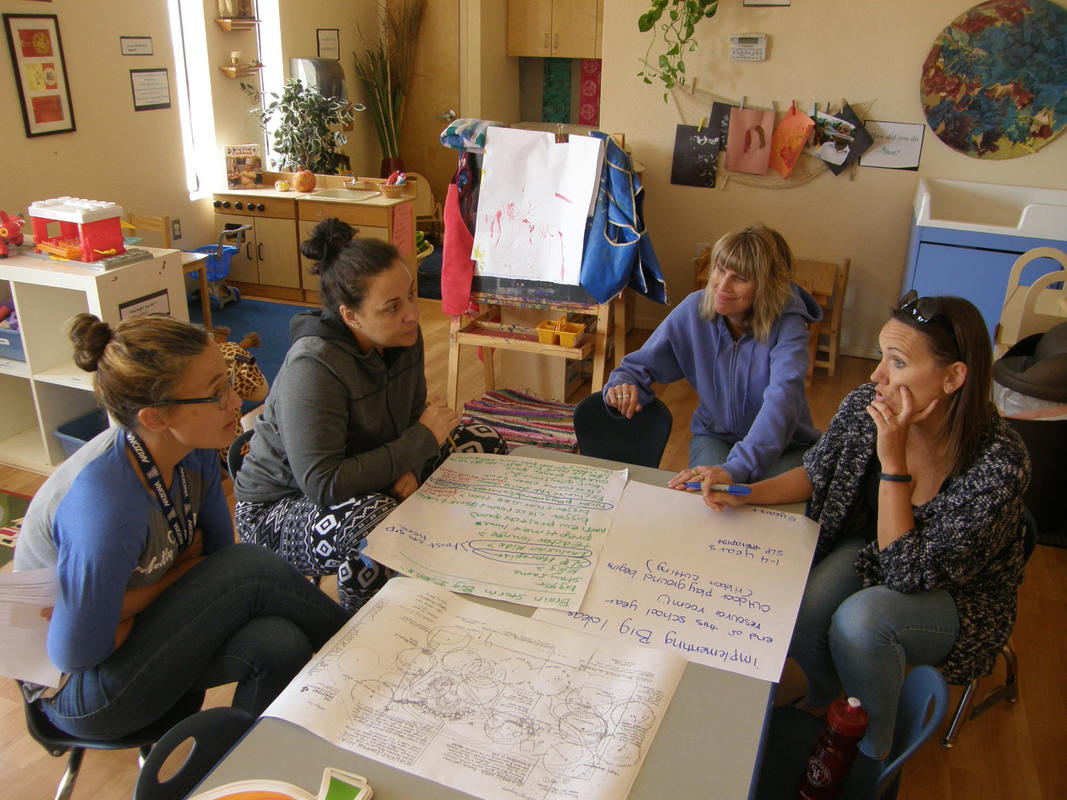
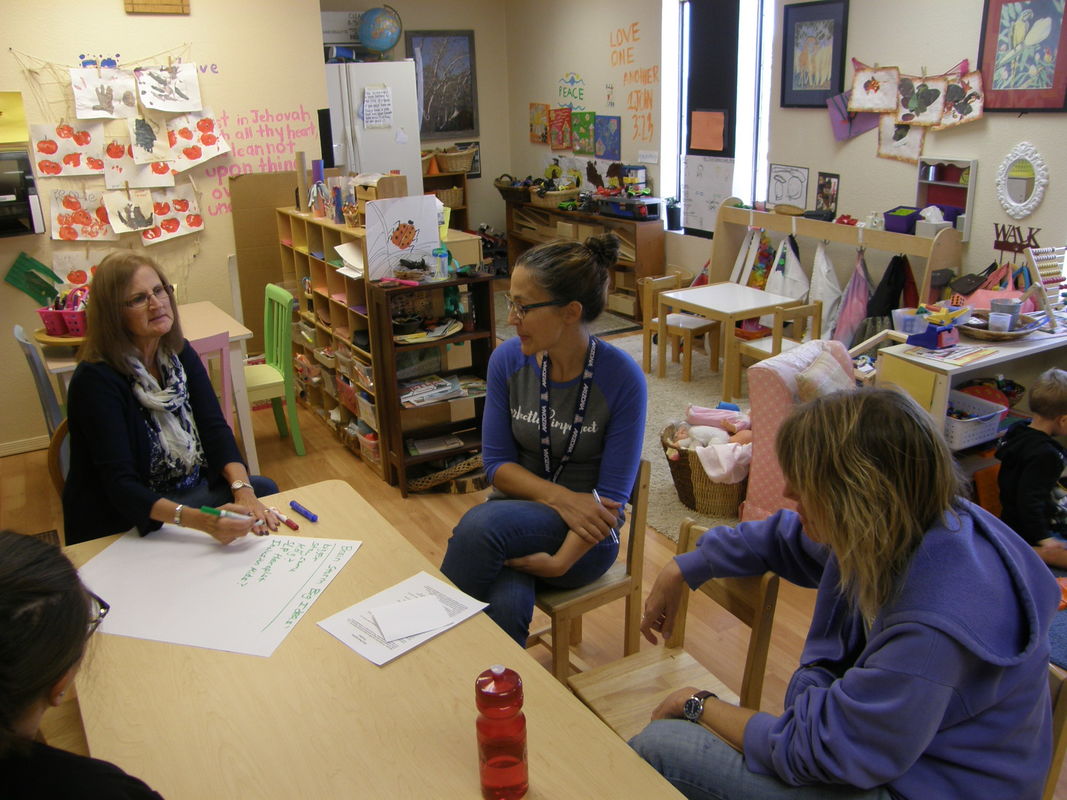
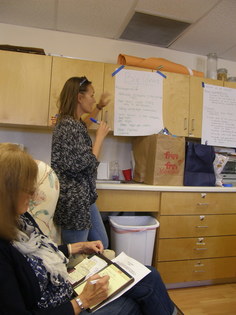
 RSS Feed
RSS Feed
